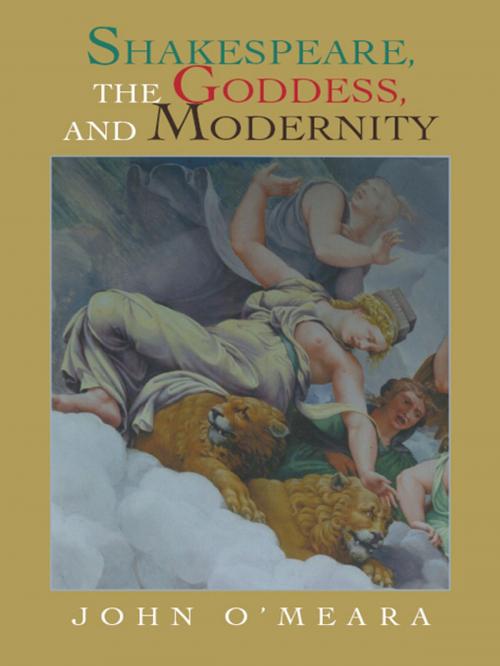| Author: | John O'Meara | ISBN: | 9781469746296 |
| Publisher: | iUniverse | Publication: | February 17, 2012 |
| Imprint: | iUniverse | Language: | English |
| Author: | John O'Meara |
| ISBN: | 9781469746296 |
| Publisher: | iUniverse |
| Publication: | February 17, 2012 |
| Imprint: | iUniverse |
| Language: | English |
OMearas work is the perfect supplement to [Ted] Hughess Shakespeare and the Goddess of Complete Being, shedding further illumination into those areas where Hughess penetrating lens finally appears to dim. [This work] shines utterly clear light on the path of understanding we may re-win with regard to myth, forcing the reader to face the incredible starkness of the prospect we faceand the lack of optionsever closing inand also giving the reader the necessary clues to follow, particularly Barfield, Shakespeare and Rudolf Steiner.
Richard Ramsbotham, author of Who Wrote Bacon? William Shakespeare, Francis Bacon and James I
Very interesting stuff. Particularly where you parallel the break through the tragic dead end to the transcendental-redemptive solution--that I follow from Macbeth through Lear to the last plays--with the Steinerian view of the same progress.
Ted Hughes on Othellos Sacrifice, Letter to John OMeara, 21 November, 1996, in the Ted Hughes Archives, Emory University, Atlanta, Georgia
This volume brings together virtually all of the published shorter critical work of John OMeara, gathered from over 30 years of production. What emerges is an extensive, uniquely challenging interpretation of the evolution of, for the most part, English literary history, from Shakespeares time to our own.
excellent Shakespearean explorationsThe idea of Lutheran depravity without Lutheran grace or Lutheran-Calvinist justification is very strong and original
Anthony Gash, author of The Substance of Shadows: Shakespeares Dialogue with Plato
OMeara sets out to demonstrate... the essential fact that full encounter with human depravity was[/is] a necessary step in the attaining of true [otherworldly] Imagination.
Eric Philips-Oxford, on The New School of the Imagination from the Sektion fur Schone Wissenschaften, the Goetheanum, Newsletter, Issue No. 3, Winter/Spring 2008-2009.
OMearas work is the perfect supplement to [Ted] Hughess Shakespeare and the Goddess of Complete Being, shedding further illumination into those areas where Hughess penetrating lens finally appears to dim. [This work] shines utterly clear light on the path of understanding we may re-win with regard to myth, forcing the reader to face the incredible starkness of the prospect we faceand the lack of optionsever closing inand also giving the reader the necessary clues to follow, particularly Barfield, Shakespeare and Rudolf Steiner.
Richard Ramsbotham, author of Who Wrote Bacon? William Shakespeare, Francis Bacon and James I
Very interesting stuff. Particularly where you parallel the break through the tragic dead end to the transcendental-redemptive solution--that I follow from Macbeth through Lear to the last plays--with the Steinerian view of the same progress.
Ted Hughes on Othellos Sacrifice, Letter to John OMeara, 21 November, 1996, in the Ted Hughes Archives, Emory University, Atlanta, Georgia
This volume brings together virtually all of the published shorter critical work of John OMeara, gathered from over 30 years of production. What emerges is an extensive, uniquely challenging interpretation of the evolution of, for the most part, English literary history, from Shakespeares time to our own.
excellent Shakespearean explorationsThe idea of Lutheran depravity without Lutheran grace or Lutheran-Calvinist justification is very strong and original
Anthony Gash, author of The Substance of Shadows: Shakespeares Dialogue with Plato
OMeara sets out to demonstrate... the essential fact that full encounter with human depravity was[/is] a necessary step in the attaining of true [otherworldly] Imagination.
Eric Philips-Oxford, on The New School of the Imagination from the Sektion fur Schone Wissenschaften, the Goetheanum, Newsletter, Issue No. 3, Winter/Spring 2008-2009.















